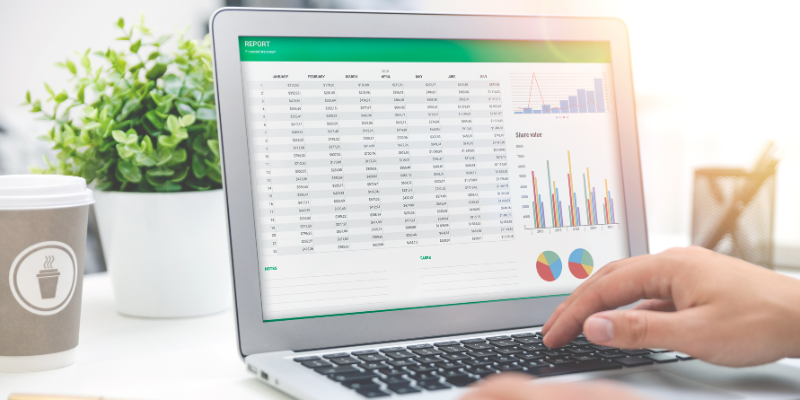Bookkeeping in a Spreadsheet? Time to Level Up
- Ely Bustos
- Sep 9
- 2 min read

If you're still using Excel or Google Sheets to track your business finances, first of all—props to you. Spreadsheets are flexible, familiar, and free. They’ve helped millions of business owners stay afloat in the early stages.
But at some point, that trusty spreadsheet becomes more of a risk than a resource.
So how do you know it’s time to level up your bookkeeping game? Let’s dig into it.
When Your Spreadsheet Starts Holding You Back
Here are a few red flags that your current system is no longer cutting it:
You’re spending hours trying to reconcile transactions manually.
You’re behind on invoicing or don’t track unpaid invoices at all.
Your tax preparer sighs every time you hand over “the spreadsheet.”
You have no idea where your cash is going—or if you’re even profitable.
You’re constantly worried about making mistakes that could cost you.
Sound familiar?
Why It's Time to Switch to a Real System
As your business grows, so do the expectations—from your CPA, lenders, and even the IRS.
Staying in spreadsheets means:
No automation
No audit trail
No real-time financial visibility
That’s a dangerous combo when you’re trying to make big decisions or secure funding. A modern bookkeeping solution (or a trusted pro) gives you peace of mind, faster insights, and fewer fires to put out.
Plus, tools like QuickBooks, Xero, or FreshBooks offer:
✅ Bank feeds that sync automatically
✅ Clean reporting dashboards
✅ Invoicing + payments in one place
✅ Payroll and tax integrations
Let’s be honest—your time is too valuable to be spent copy-pasting line items.
From Chaos to Clarity
Upgrading your bookkeeping isn’t just about looking more “professional”—it’s about making better business decisions. When your books are up to date and accurate:
You know your margins (and how to improve them).
You can spot trends and slow months before they hit.
You’ll be ready for tax season with zero panic.
You can delegate confidently instead of micromanaging receipts.
And if you’re already overwhelmed, outsourcing might be the best move. A bookkeeper or fractional accountant can take this off your plate completely—and often, it’s more affordable than you think.
Ready to Take the First Step?
Start by asking yourself: “What would I do with 5–10 extra hours a month?”
That’s what upgrading your books can give you.
So whether you’re switching to accounting software, hiring a bookkeeper, or both—it’s time to stop managing your money like a hobby and start treating it like the business it is.
Your future self will thank you.




Comments